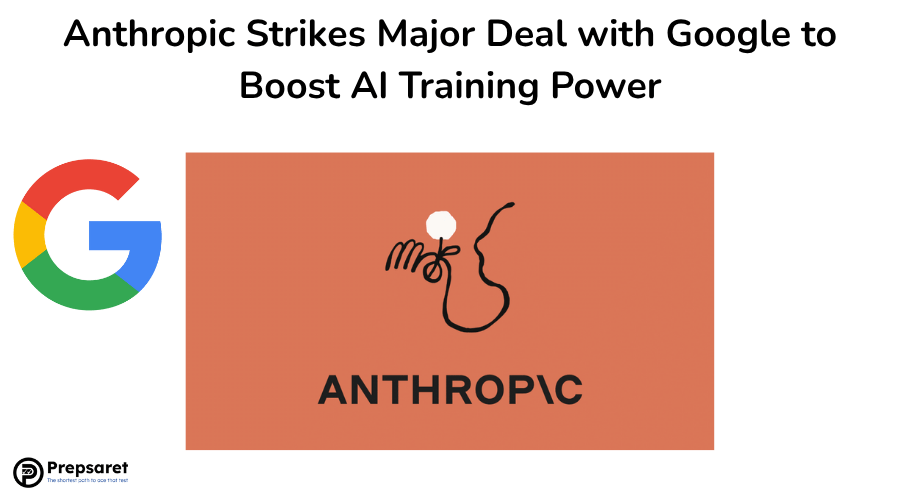Anthropic is deepening its collaboration with Google in a massive new agreement that grants the startup access to as many as one million of Google’s artificial intelligence chips — a deal valued at tens of billions of dollars.
The move underscores Anthropic’s push to accelerate the development of its Claude AI systems amid an increasingly competitive AI race.
Under the agreement, announced Thursday, Anthropic will gain access to more than one gigawatt of computing capacity by 2026.
This power will be used to train upcoming versions of Claude using Google’s proprietary tensor processing units (TPUs), hardware that Google has typically reserved for its internal projects.
According to Anthropic, TPUs were chosen for their strong balance of cost, performance, and energy efficiency, as well as the company’s prior experience in training and deploying Claude models on the same chips.
Related story: OpenAI Launches ChatGPT Atlas, Taking Aim at Google Chrome’s Market Lead
Rising Demand for AI Compute Power
The partnership highlights the soaring demand for high-performance chips as AI firms rush to build systems that can rival human reasoning.
Alphabet-owned Google, whose TPUs can also be rented through Google Cloud, is positioning its chips as an alternative to Nvidia’s heavily sought-after processors.
As part of the deal, Google will also provide additional cloud infrastructure to support Anthropic’s growing operations.
Meanwhile, rival OpenAI has entered into several agreements projected to exceed $1 trillion in total costs, securing roughly 26 gigawatts of computing power—an amount sufficient to supply electricity to around 20 million U.S. households.
Industry insiders estimate that a single gigawatt of compute can run about $50 billion. OpenAI continues to rely primarily on Nvidia’s graphics processing units and AMD’s AI chips to handle its surging workloads.
Earlier this month, Reuters reported exclusively that Anthropic expects to more than double—or potentially nearly triple—its annualized revenue run rate next year, driven by a sharp increase in enterprise adoption of its products.
Anthropic has built its reputation around advancing AI safety and developing systems suited for business-focused applications.
Its Claude models have already fueled innovation across the tech landscape, powering new startups like Cursor that use AI to transform software development.
As the global race for AI dominance accelerates, Anthropic’s expanded access to Google’s TPUs could give it the computational edge it needs to compete with industry heavyweights while staying true to its focus on responsible and enterprise-ready AI.
Read next: Amazon Web Services Restores Operations After Massive Global Outage

